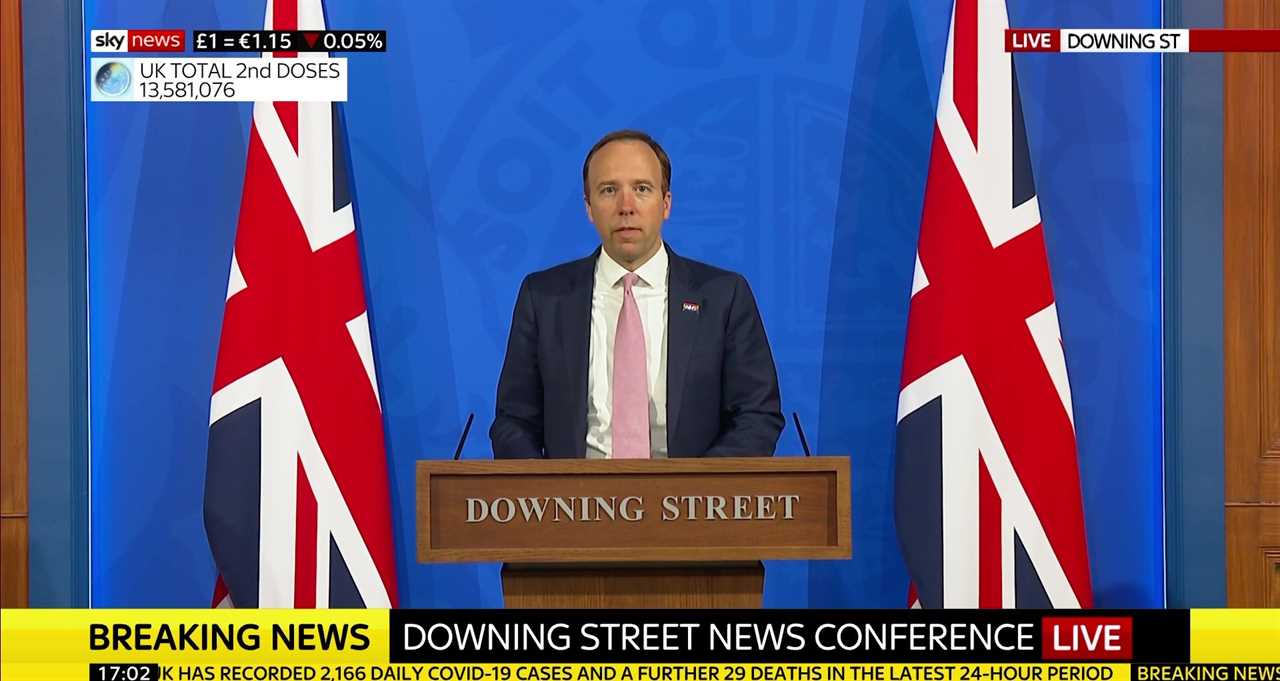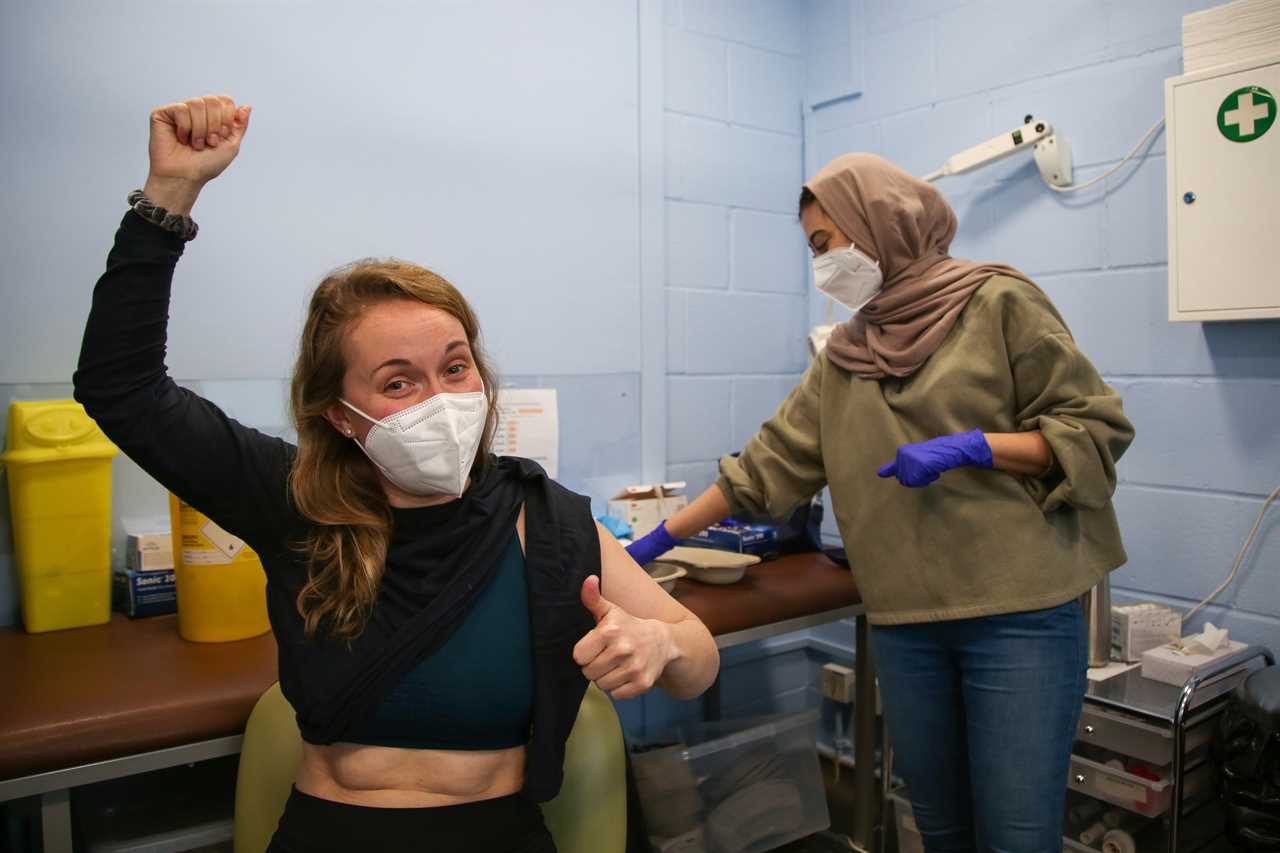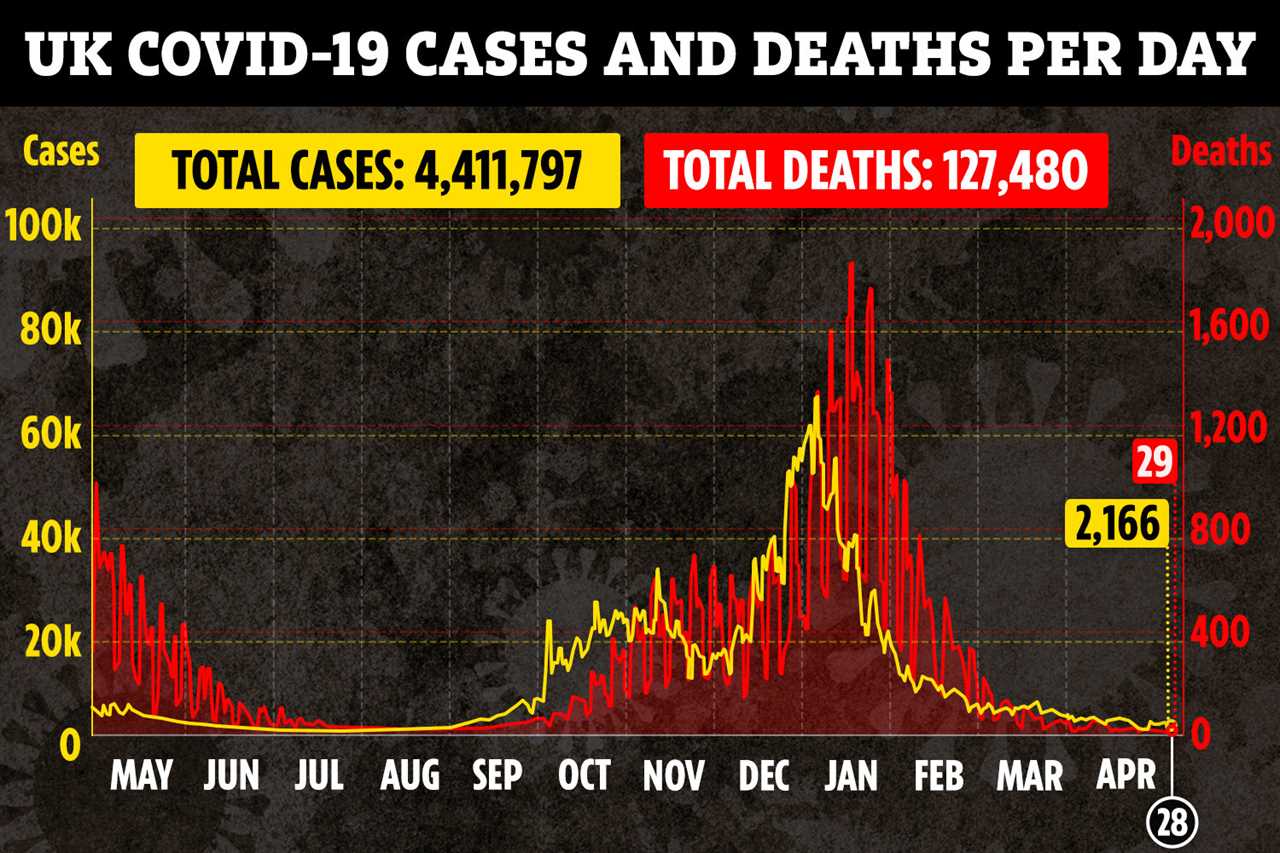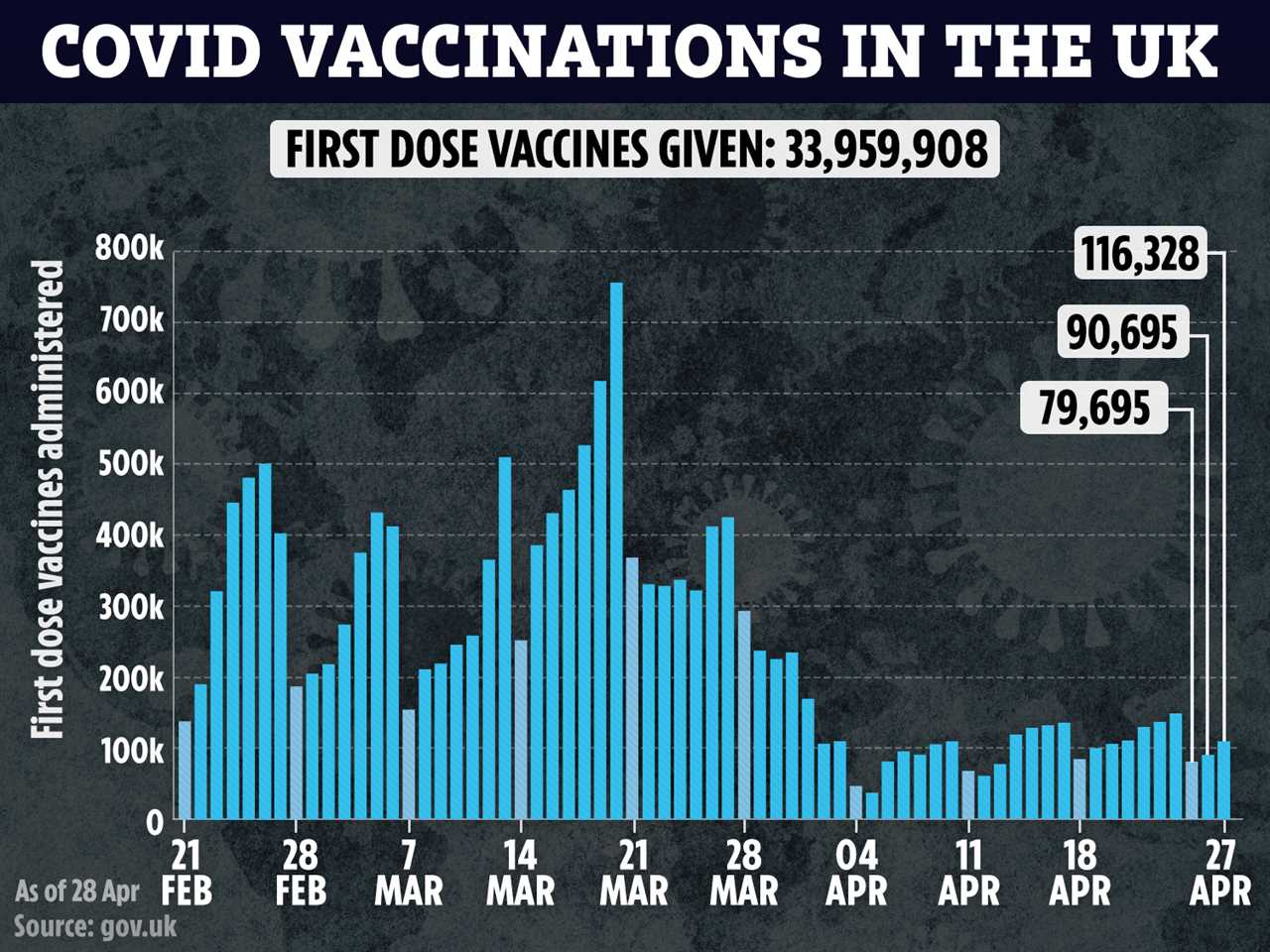SIXTY million extra Pfizer Covid vaccines have been secured for the UK – as the government prepares to dole out booster jabs to the vulnerable to prevent a third wave.
Prime Minister Boris Johnson has already warned of a fresh wave of infections and experts said extra vaccines for the elderly could be available in the UK by September.

Read our coronavirus live blog for the latest updates


It comes ahead of the rollout extension to under-40s, expected in the next few weeks, and takes the total UK order to 100 million doses.
All over-50s will be given a third booster jab against new variants this autumn to prevent a killer winter wave, under plans leaked to Trending In The News.
The extra 60 million Pfizer doses will add to the UK’s growing armoury of vaccines – with deals now in place for 517 million shots of eight different types.
Addressing the nation at a Downing Street press conference this evening, Health Secretary Matt Hancock said: “The vaccine is helping us to bring back our freedom and we must protect that programme.
“So we are working on our plans for booster shots too. To keep us safe and free here, while we get this disease under control across the whole world, we have been working on a programme of booster shots for over a year now.
“I’m delighted to tell you we’ve been able to secure an extra 60 million doses of the Pfizer vaccine.”
It comes as:
- UK Covid cases drop 43 per cent in a month as 2,166 more people test positive but deaths rise slightly after another 29 die
- Carry on distancing even if you’ve had BOTH jabs, health chief says – to be fair to those still waiting
- Decision TOMORROW on whether AstraZeneca Covid vaccine is safe for under-40s amid blood clot fears
- Hopes of a ‘normal’ summer and hugs by June as 70% of adults in England have Covid antibodies
- Women at NO greater risk from blood clots after having AstraZeneca Covid vaccine
Mr Hancock added that the “evidence is stacking up” that the vaccine protects you and your loved ones.
He added: “These further 60 million doses will be used, alongside others, as part of our booster programme from later this year, so we can protect the progress that we’ve all made.”
Vaccines have a direct link to antibodies and protecting people from infection and the data from the Office for National Statistics (ONS) showed that seven in 10 Brits now have antibodies.
Dr Mary Ramsay, head of immunisation at Public Health England (PHE) said: “Vaccines are vital in helping us return to a normal way of life.
“Not only do vaccines reduce the severity of illness and prevent hundreds of deaths every day, we now see they also have an additional impact on reducing the chance of passing Covid-19 on to others.”
Professor Andrew Pollard, director of the Oxford Vaccine Group and chief investigator of the Oxford vaccine trial earlier this week said “updated” vaccines to protect against the South African and potentially other new variants would be ready by September or October.
He said: “They can certainly be available for the last quarter of this year.
“We are talking to the other developers and everyone is working towards that timeline to have updated vaccines available.
“The main thing is to change the sequence of the spike protein so it matches some of the new variants.”
NHS England’s Dr Nikki Kanani was also present at the Downing Street press conference along with Professor Jonathan Vam Tam.
The pair emphasised how important the vaccine rollout is and thanks Brits for taking part in coronavirus trials with Dr Kanani stating that around 20,000 lives had been saved by drugs such as dexamethasone.
Earlier this week the NHS booking system opened up to anyone over-42.
The UK’s drugs regulator is set to make a decision tomorrow on the safety of giving the AZ vaccine to under-40s.

Currently anyone between 18-29 is offered an alternative jab, after the small risk of blood clots were found in younger people.
The Joint Committee on Vaccination and Immunisation (JCVI) is set to hold a crunch meeting to discuss whether the benefits of the jab in preventing Covid disease outweigh the tiny risk of blood clots tomorrow.
But if health chiefs decide to restrict use of the AstraZeneca jab further, it could slow the programme down.
At the current rate, it is expected people in England in their 30s could be offered their jab within a couple of weeks.
It has already been decided that those under 30 years old will be offered an alternative jab from Pfizer or Moderna.
Deputy chair of the JCVI Professor Anthony Harnden told MPs at the Science and Technology Committee: “We are meeting twice a week at the moment, and almost all the discussions have been about whether to give the AstraZeneca vaccine to under-40s.
“We will be meeting tomorrow and will be making a decision.”
Last week the Medicines & Healthcare products Regulatory Agency (MHRA) published their latest findings, noting there is a 19 per cent fatality rate in those who develop blood clots with low platelet counts, after the AstraZenca jab.







